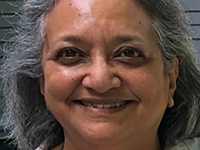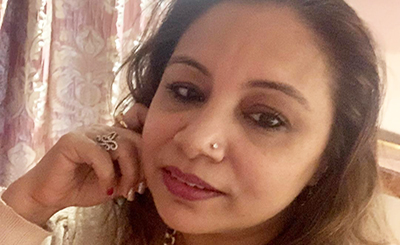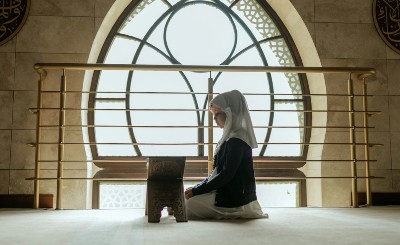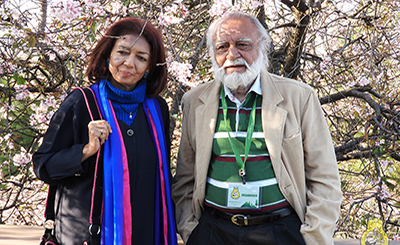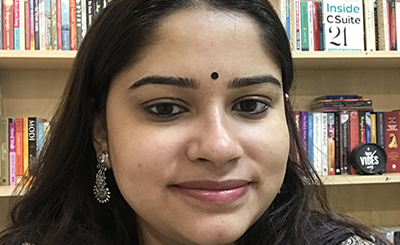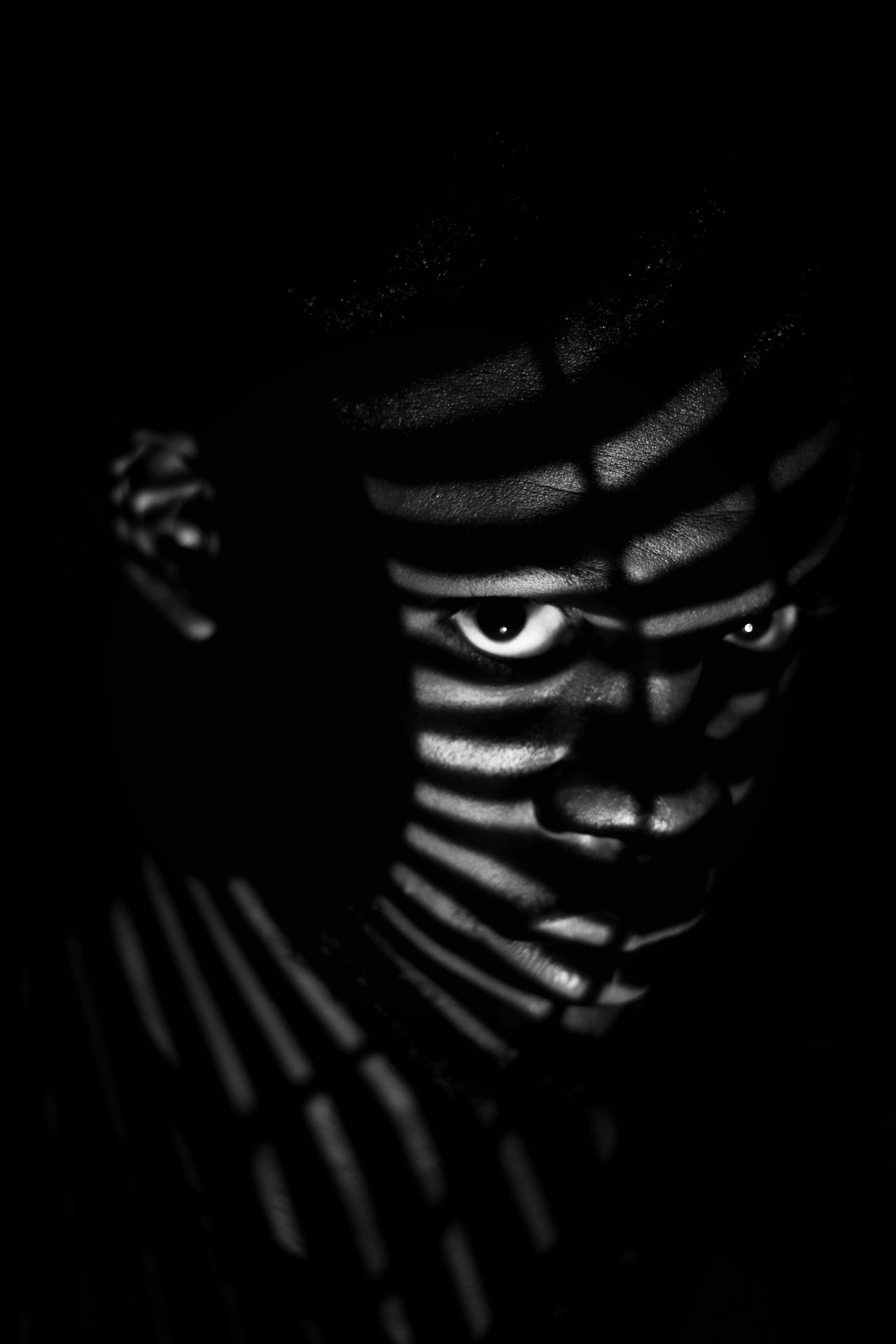
This astounding volume, both in prose and verse, showcases 32 powerful voices in the genre from the Indian subcontinent that will delight SF lovers all over
‘There was a time,’ said Masterji, ‘when every household had plenty of pain to sell.’
We were sitting by the rocks at the very edge of my village. In the distance behind us, the high mountains scratched the heavens with their snowy peaks.
Right in front of us, the bare hillside plunged down at rakish angles. The plains spread away far below. ‘No longer true. People have forgotten that pain was once commonplace.’
‘Won’t you show me just a bit?’ I asked, using my most wheedling voice. I was eight years old and the only boy in a house full of sisters and mothers. At home, I got whatever I wanted when I used that voice. ‘Just once?’
But the pain merchant was immune.
He intrigued me: I had never met someone who did not instantly give in to my demands. Plus, he looked so strange. Everyone I knew wore wool and embroidered felt slippers on their feet or leather boots. My mothers and sisters
wore tunics, and the men wore mirrored caps and turbans. The merchant, by contrast, was dressed in layers of greasy leather held together with lengths of string. His shoes were tied on with strips of leather. He wore a dark brown
hood that partially obscured his face. Countless small pouches hung from his shoulders and down his back. Like bunches of grapes.
I could see that he wanted to please me, yet he shook his head. ‘I’ve explained before. My wares are perishable,’ he said. According to him, recorded pain was like perfume. It got depleted with each use. ‘I can’t afford to show you anything unless you can pay.’
‘I can pay today, Masterji,’ I said. ‘I found something to trade.’
He looked at me sideways, his face a mass of wrinkles. I couldn’t tell if he was smiling or frowning. ‘Trade, eh?’ he remarked, his nose lifting and twitching. ‘Come on then. Show me what you’ve got.’
I knelt, my right knee on the ground and my left foot stuck forward. I lifted the cu! of my pants to reveal my ankle. There was the beginning of an old scar there. ‘You see this?’ I said, squinting up at the merchant. Then I removed
my shoe and pulled o! the sock, so that he could see the whole foot, naked. ‘That’s the kind of thing you’re interested in, isn’t it?’ My mothers had told me I’d had an accident when I was a baby. It had been fixed. No trace now
remained of the wound, except for the scar.
Masterji knelt, reaching for my foot with both hands. I hadn’t noticed earlier that he wore leather gloves, with the tips cut off. He traced the contours of the scar carefully with his forefinger. Glancing up, he asked, ‘What caused this injury? Did your mothers tell you? Do you know how long ago it happened?’
‘Yes, they told me,’ I said. ‘It was when I was a baby. I don’t remember what happened.’
A shadow slid over us. A vulture. It wouldn’t bother us, of course. We were moving our arms and talking. Obviously alive. Even so, I tugged the ward-off out of my pocket and held it up, cocked and ready to send out a pulse.
‘Ah, don’t bother,’ said the merchant. ‘It’s got plenty to eat.’
In the few seconds during which I glanced up at the vulture, the merchant had reached into his clothes and pulled something out. An instrument, it looked like. It was shiny and metallic but also stretchy. Before I could object, he had
placed it around my ankle and was deftly moulding it into place.
I had been told not to let strangers do anything to me without explaining their actions. ‘You should ask my permission before doing that,’ I said.
He glanced up and said, ‘Do you feel it? Is it touching you?’ I shook my head. It had completely surrounded my ankle and my foot up to the arch, but I felt no sensation. ‘Fine then. You held your foot out to me, and I placed my scanner around it without making contact. That is all. No harm done. Look now. It’s reading…’
The shiny surface of the gadget had vanished. In its place was a kind of magnified picture of everything under the skin of my ankle. I could see the cord-like vessels of blood pulsing busily. The merchant was touching the surface of the gadget in such a way as to reveal different views of the internal structure of my foot. He zoomed in.
‘We have gone below the muscles and soft tissue,’ he said. ‘We can now see the bone.’ It looked surprisingly white to me. He was peering around the ligaments to find exactly what he wanted. ‘Do you notice these seams?’ Silvergrey lines. ‘Surgery. It does not look like an accident. More likely a medical procedure. Perhaps you had a birth defect, eh? Your people told you that it was an accident? Easier that way, I suppose. Makes no difference. Pain is pain.’
He tapped the surface of the gadget once again and the visual faded off. The surface reverted to its metallic appearance. He waited until he heard a faint beep, then peeled the thing away.
‘What is that?’ I asked. I felt as if I hadn’t been breathing or swallowing for the entire time that the gadget had been on my foot.
‘A dolcache,’ said Masterji, as if the name was a common one. ‘An instrument for reading and recording pain.’ He glanced at me once more, his face seizing up with wrinkles. Smiling. ‘Had you forgotten? You asked if I would accept this scar of yours as a trade. Not the scar of course, but the pain within. The memory remains in the bones, you see. My answer is yes — I got a strong signal. The question now: what sort of pain will you accept in exchange for what I took?’
He saw my confusion. I was a child, after all. What would I know of the worth of these things? Or maybe he heard the sound of distant voices. I had heard them too but hadn’t said anything for fear that he’d hurry away. As he had twice before. I never knew when or how I would next meet him.
He nodded with a bird-like twitch, as if making up his mind for both of us. ‘All right,’ he said, as he got to his feet. ‘You cannot assess the worth of what you have. Nor can we remain out in the open any longer. You’ll need to come with me. How much time do you have?’
The answer, of course, was ‘None.’ I wasn’t allowed to spend any time alone with strangers. But if I said that, he may not take me. So I lied and said, ‘I don’t know.’
He told me we wouldn’t have to go far. Which was true.
What he didn’t mention was that the place was well-hidden. No one would "nd me, not even the dogs. It was underground, the entrance tucked under a smelly heap of some sort. Probably the remains of a body. There were so
many around, lying in the open, rotting. That’s why the dogs wouldn’t find me. They were trained to ignore the bodies.
Inside, underground, the merchant had a few lights strung up. They were connected to a large battery, humming softly in the corner. The place must have been a basement at one time. There was some old furniture. He asked me to sit on a high chair. Then he drew up a stool and placed it in front of me, for himself. ‘Let me see,’ he said, as he began to unwrap the many little bags that were slung around his body. ‘What shall I start you off with?’
The pouches were connected to the cords tied around him. As he unwrapped the strings and the pouches, he became thinner and thinner. The sheets of leather that I had thought were clothes were merely separators:
beneath each layer were yet more pouches.
‘Oh,’ I said. ‘That’s a lot of pouches.’
‘They’re not heavy,’ said the merchant. ‘Pain has no weight.’
He was now down to his actual clothes. He looked very different. Diminished. A thin old man in a dirty black sweater and loose black pants. His feet remained bound in cords. His hair was white. He had arranged the strings of pouches and the leather separators neatly on the floor. He looked carefully at the array before making a selection.
He sat down now, facing me. ‘Because you’re a child and this is your first time, I will give you three separate doses, each one very brief.’ He opened the pouch in his hand. Inside it was slender object, like a bracelet, except it
was made of glass. FlexiGlass. He flipped an invisible clasp and asked me to put out a hand. ‘It doesn’t matter which one,’ he said.
I was starting to feel afraid. Of being underground. Of knowing that I could not be found. My mothers would be furious. The men would be raging and pounding their "sts. I did not say any of this to him. My curiosity was far greater than my fear.
‘What will I feel?’ I asked Masterji. ‘Will it happen all at once? Or slowly?’ Everything I was doing was wrong. I should never have followed the merchant. I didn’t even know his name. My family would be mad with worry by now. ‘Maybe I should go home.’
The wrinkles sprang into view again. Just a twitch. ‘Okay, only one dose then. And I’ll owe you two more. You’ve already paid me, don’t you see? I’ll have to meet you again at least until I’ve paid you back. Hold out a wrist?’
I extended my right hand towards him, palm up, fingers curled.
He placed the bracelet around the wrist. It felt cool against my skin but without weight. ‘You see this small red dot?’ he asked, pointing to the surface of the bracelet. I nodded mutely.
‘I’m going to press it three times. That means, you’ll have three seconds before the dose begins. It’ll last for 10 seconds. Then it’ll stop on its own.’ He was looking at me and must have seen the fat tears spilling down my cheeks now. Tears of fear and guilt. He asked, ‘Shall I go ahead?’
I nodded again, unable to speak.
He pressed the button three times. The red light turned green.
A brightness pierced my wrist. I can’t find any other words to describe it: a needle made of lightning was stitching sensations onto my wrist where the bracelet clasped it. I gasped aloud. My teeth jumped in my mouth. The sides
of my nose rose up. My hair stood on end. Then it was over. The bracelet sprang open, and he caught it before it fell.
‘Ahh!’ I said, panting. ‘Aaaah! AHH!’
Masterji was wrinkle-wreathed again. Gazing at me, fondness in his eyes. ‘Your first experience of pain,’ he whispered softly. ‘A sweet thing to see.’
I sucked in my breath. My mind was whirling. I couldn’t form words.
He read the question in my eyes. ‘That was from a young girl. She had been cut by a glass bangle. Her sensations were absolutely pure, untouched by sorrow or premonition. And freshly caught. I was there when the wound
occurred, though I recorded it years later.’
‘I must go,’ I blurted out. ‘Or else they’ll find me. Us.’ Which would be terrible. Not for me, but for him. ‘But please – I want to know more!’
He took me outside without responding to my demand. He did not even bother to wear his layers. Up we went, via a different exit and thence towards the rocks. The voices calling for me were louder now. I could hear the dogs.
‘Pant loudly and pretend to be more tired than you are,’ he said, before hurrying away. ‘Let them think you got lost and have been frantic for some time. Tell them anything but where you’ve been and with whom.’
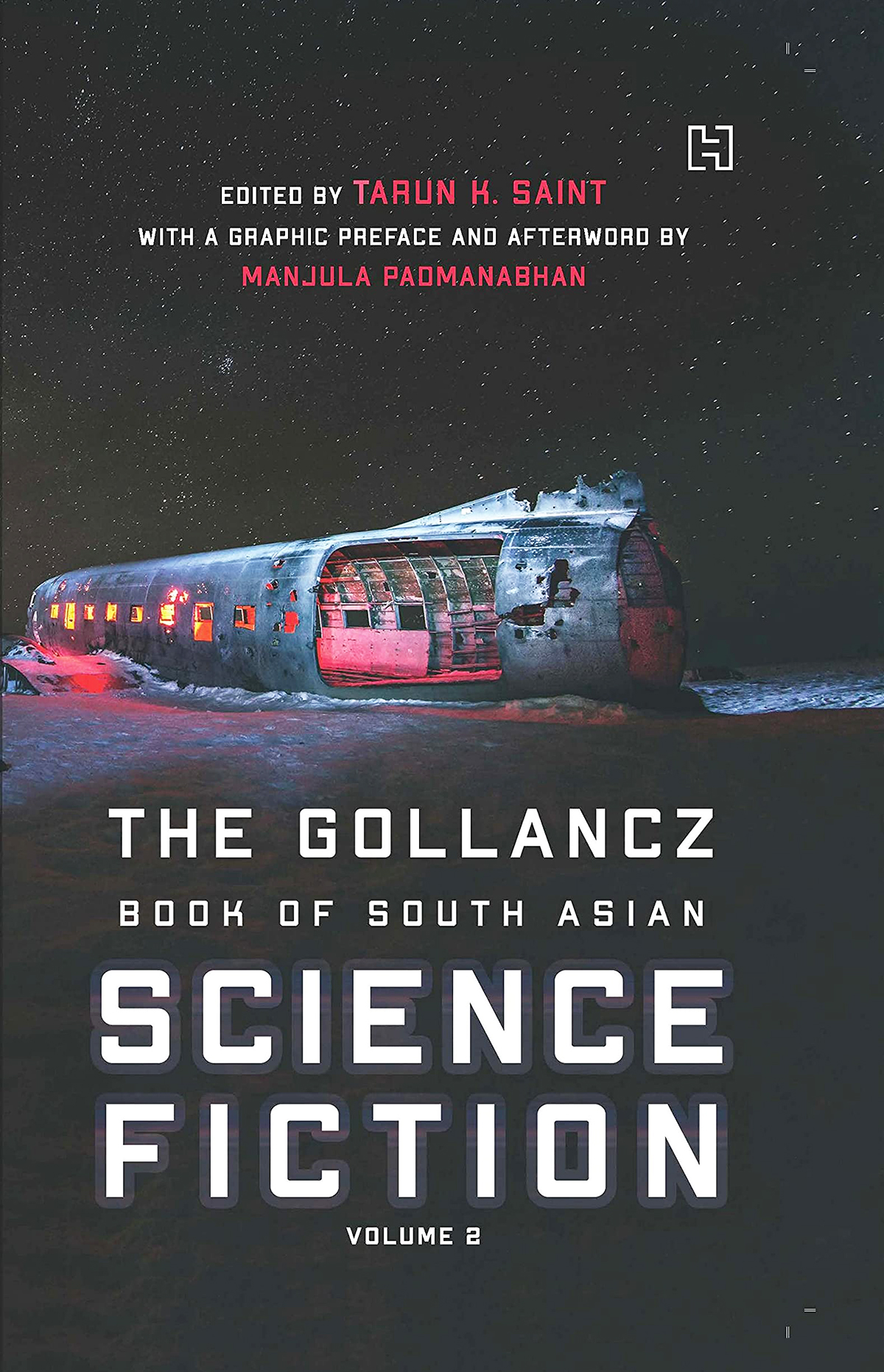
Excerpted with permission from The Gollancz Book of South Asian Science Fiction Volume 2, edited by Tarun K. Saint, published by Hachette India (pp. 488, Rs 699)
More from The Byword
Comments
*Comments will be moderated



